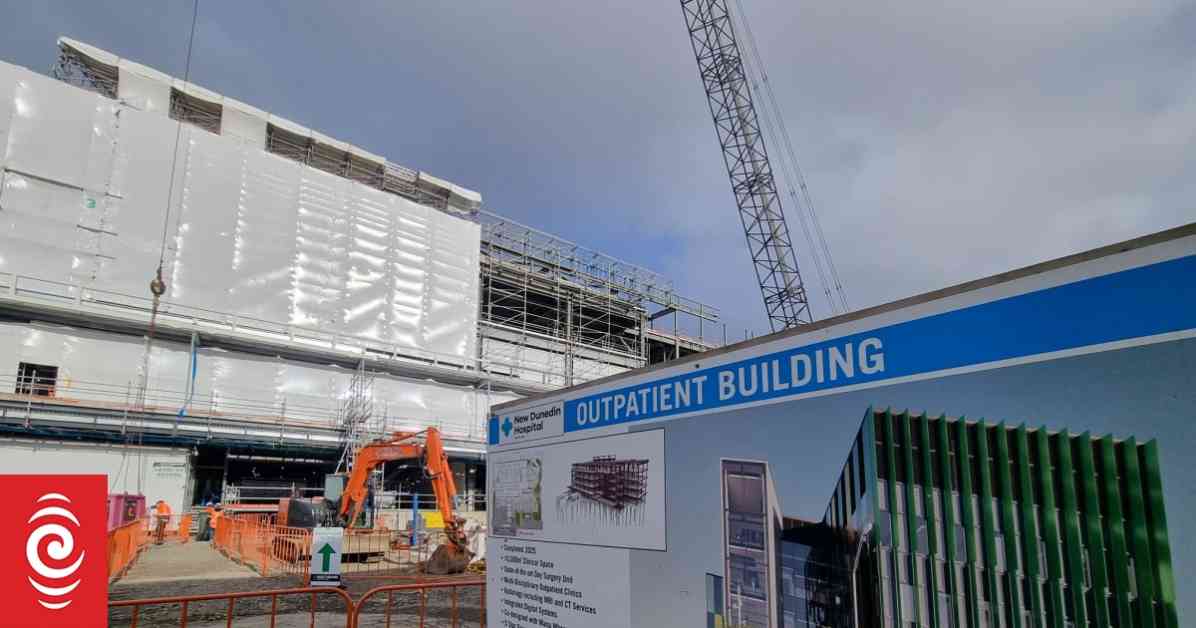Specialist’s Concerns Over Dunedin Hospital Redevelopment
The Dunedin Hospital redevelopment has been a topic of discussion and controversy, with the government’s revised plan facing scrutiny and concerns from a prominent figure in the medical field. Dr. Yoram Barak, an associate professor of psychiatry and consultant psycho-geriatrician at Dunedin Hospital, has raised alarm bells about the proposed changes to the new hospital, emphasizing the growing health needs of the aging population that cannot be overlooked or underestimated.
Government officials, including Health Minister Simeon Brown, have defended the revised plan, citing budget constraints and the need for future-proofing the hospital to accommodate the region’s growth. However, Dr. Barak’s perspective sheds light on critical issues that may be overlooked in the government’s decision-making process.
Challenges of an Aging Population
Dr. Barak’s concerns stem from the unique challenges faced by regions like Otago and Southland, where the population is aging rapidly, surpassing national averages. As someone who works closely with patients suffering from dementia, he has first-hand experience of the strain on healthcare services and the urgent need for specialized care facilities.
The revised plan for the new Dunedin Hospital, while aiming to deliver the project within budget, has raised questions about the allocation of resources for elderly patients. Dr. Barak’s disappointment with the reduction in psycho-geriatric beds highlights a critical gap in addressing the mental health needs of the aging population, a demographic that is only expected to grow in the coming years.
Implications for Community Health
The decision to cut down on services for older individuals raises serious concerns about the long-term impact on community health. Dr. Barak warns that by neglecting the needs of the elderly, especially those with complex health conditions, the government may be setting the stage for a crisis in the near future. With projections indicating a shortage of resthome beds for dementia patients by 2035, the implications of the revised hospital plan are far-reaching.
In a broader context, Dr. Barak’s observations underscore a global trend of sidelining the health needs of older populations, a pattern that he finds particularly troubling in New Zealand’s policy decisions. Despite the majority of healthcare services being utilized by individuals over 65, there appears to be a disconnect between the government’s priorities and the pressing demands of an aging society.
The new health minister, Simeon Brown, faces criticism from Dr. Barak for what he perceives as a lack of focus on elderly care. The tension between budget constraints and healthcare priorities is evident in the government’s approach to the Dunedin Hospital redevelopment, prompting questions about the trade-offs made in the process.
Community Response and Future Prospects
The local clinical advisory group for the new Dunedin Hospital has expressed cautious optimism about the government’s announcement, noting the need for staged fit-outs and redesign work to ensure safe and efficient care delivery. Mayor Jules Radich has echoed a similar sentiment, acknowledging the challenges of balancing immediate needs with long-term infrastructure planning.
However, not all stakeholders are convinced of the benefits of the revised plan. Nurses Organisation president Anne Daniels has voiced skepticism about the government’s promises, suggesting that residents may not be getting the healthcare facilities they were assured in previous proposals. The discrepancy between the initial business case for a new hospital and the scaled-down version raises concerns about transparency and accountability in healthcare planning.
As tensions rise among residents and healthcare professionals, the fate of the Dunedin Hospital redevelopment hangs in the balance. Medical student Kate Bryant’s poignant reminder of the stakes involved in healthcare decisions serves as a sobering reality check for policymakers. The urgency of addressing the region’s healthcare needs, especially for vulnerable populations, demands a thoughtful and comprehensive approach that considers both short-term constraints and long-term consequences.
In conclusion, the debate surrounding the Dunedin Hospital redevelopment reflects larger societal challenges related to aging populations, healthcare funding, and government accountability. Dr. Barak’s advocacy for prioritizing the health needs of elderly patients resonates with a broader call for compassionate and sustainable healthcare policies that address the diverse needs of communities. As stakeholders navigate the complexities of healthcare planning, the voice of frontline professionals like Dr. Barak serves as a crucial reminder of the human impact of policy decisions. The future of Dunedin’s healthcare infrastructure hinges on a delicate balance between fiscal responsibility and ethical imperatives, a balance that will shape the well-being of generations to come.

















